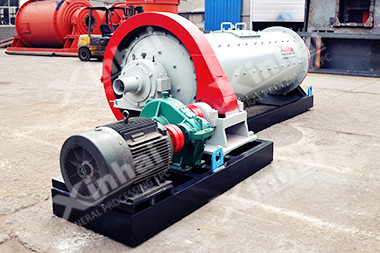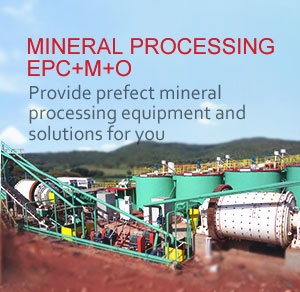- Home
- About
-
Mineral Processing EPC+M+O

Providing optimized solutions for your mine, one-stop service for mineral processing plant!
View details -
Product
- Grinding
- Classifying
Grinding & Classifying
- Flotation
- Gravity Separation Equipment
- Magnetic Equipment
- Gold Extraction Equipment
- Washing Equipment
Separating Process
- Thickening
- Dewatering Machine
Thickening & Dewatering
- Accessories
- Auxiliary Product
Consumables

Xinhai mineral processing equipment mainly include: grinding equipment, flotation equipment, dewatering equipment, magnetic separation equipment, and so on. Some of the equipment is Xinhai independent research and development, and has been awarded national patent. View details
-
Solutions
- Gold Tailings
- Tailings
Tailings

Gold CIP Production Line adsorbs gold from cyaniding pulp by active carbon including 7 steps: leaching pulp preparation, cyaniding leaching, carbon adsorption, gold loaded carbon desorption, pregnant solution electrodeposit, carbon acid regeneration, leaching pulp. View details
- Case
-
News
- Contact
Home Pruduct News Three Operating Guidelines to Teach You How to Properly Operate Grinding Equipment
Three Operating Guidelines to Teach You How to Properly Operate Grinding Equipment
2020-12-07 XinHai Views (3150)
As the important equipment in the whole production line of a processing plant, the grinding equipment undertakes the heavy responsibility of grinding operation. But it’s also well-known that grinding equipment wears out a lot, which requires us not only to maintain it regularly but also to pay attention to the daily operation of grinding equipment. In the operation of grinding equipment, some users unknowingly misused the grinding equipment, resulting in the “premature death” of the equipment, and unilaterally complained about the poor quality. However, even if the grinding equipment has superior quality, if the daily operation is careless, the equipment will also be damaged prematurely.
Then, in the daily operation, how should the ball mill operator ensure the normal operation of the equipment? Here, we summed up three grinding equipment operating guidelines, which are briefly summarized as “equal feeding, large sand return, and high concentration”. Properly following these three operational guidelines will prolong the service life of the grinding equipment and help to achieve the ideal grinding effect.

1. Equal Feeding
What is “equal feeding”? Here it contains two meanings: one is to ensure the uniform feed size; the second is to ensure the constant feeding speed (the amount of ore fed into the grinding equipment per unit time).

Blindly increasing the feeding capacity will cause the coarser particle size of ground products and increase the amount of sand return. In this case, the grinding equipment is likely to appear the “dilatation” phenomenon, which will lose its grinding effect for overloading. But if the feeding capacity is insufficient, the discharge particle size will become finer and the amount of sand return will be reduced accordingly. In serious cases, the lining board and the grinding medium will make an obvious impact sound, resulting in unwarranted wear and tear between them. When the feeding capacity remains the same, the change of particle size will also occur in a similar situation.
Therefore, the feeding capacity and particle size of feeding should be continuous, uniform and stable at a higher level, and the frequent fluctuation from time to time will affect the final grinding effect.

2. Large Sand Return
The sand return means that in the closed-circuit grinding, the coarse particles from the grading equipment was returned to the grinding equipment. In general, the amount of returned minerals is often several times more than the feeding capacity. The ratio between the amount of returned sand and the amount of raw ore is called the sand return ratio. Here the so-called “large sand return” requires us to maintain the “ideal sand return ratio” during the operation of grinding equipment.
The practice has proved that the proportion of return sand ratio will directly affect the production efficiency of grinding equipment. When the proportion is large, the increase of the total feeding capacity of the grinding equipment speeds up the discharging speed of the grinding equipment. The retention time of the ore in the mill is shortened, and the circulation is accelerated.

The research found that, within a certain range (such as between 100-500%), the productivity of grinding equipment will also increase with the increase of sand return ratio. However, after reaching a certain point, the productivity will gradually decrease, and the total feeding capacity of grinding equipment will approach the upper limit of its passing capacity. If the sand return ratio is forced to increase at this time, it is easy to cause grinding equipment to the “dilatation”. Therefore, the sand return ratio should be kept stable and close to a constant value, so as to obtain ideal productivity and reduce energy consumption at the same time.

3. High Concentration
The so-called “high concentration” means that the weight of the ore occupies a higher percentage of the weight of the entire pulp. The grinding concentration determines the friction between the grinding medium and the material, the pulp fluidity, the effective density of the medium and the effective weight of the medium, thus affecting the grinding equipment production efficiency.
Grinding concentration should have a suitable range. Too large or too small is not good. In general, the grinding concentration is determined by material properties, grinding process conditions, grading efficiency and overflow concentration, etc. In actual production, we generally advocate “high concentration grinding and low concentration grading”.

Take the grid ball mill as an example. When the grinding ore (>0.15mm), the grinding concentration should be controlled between 75-85%; when the overflow ball mill is processing fine grinding products (0.10-0.074mm), the grinding concentration is generally controlled between 65-75%. Higher grinding concentration could make the surface of the medium attached with a layer of pulp, thus enhancing the grinding effect. Therefore, maintaining an appropriate “high concentration” within a certain range could increase the grinding concentration, which is beneficial to improve the grinding effect.
The above three operating guidelines of grinding equipment briefly summarize the points that should be paid attention to during the operation of grinding equipment. The core behind them lies in the balance between input and output efficiency. Operators of grinding equipment need to improve their operational skills, timely respond to various conditions of grinding equipment, and ensure the smooth operation of the whole grinding process.
How to Judge the Effect of Flotation Cell According to Flotation Froth?
The appearance of flotation froth mentioned here is mainly determined by the type, amount, particle size, color, luster, density, and amount of frothing reagent attached to the surface of the flotation froth, including the virtual and real, size, and color of the flotation froth, luster, shape, thickness, intensity, brittleness and viscosity, sound, etc.... [more]
Xinhai Mining EPC participated in the Silk Road Mining Forum and Mining Technology Conference
As 2020 draws to a close, Xinhai Mining has participated in many mining conferences and its influence has been increasing. This week, Xinhai Mining was invited to participate in the Silk Road Mining Forum and China Mining Science & Technology Conference. In the Xinhai Mining Exhibition Area, Xinhai Mining’s innovative “Turn-key Solution for Mineral Processing Plant (EPC+M+O)” attracted many participants to come to visit and consult, and the technological VR processing plant experience also received a lot of attention. ... [more]
Related Article
- A Big Inventory of Quartz Sand Processing Equipment,Collect It!
- Xinhai Mining EPC Held The 2020 Safety Summary Meeting
- The Ball Mill Gears Wear Intensifies? Here Are the Reasons and Solutions!
- 【Xinhai Case】Laos 2000TPD Gold Processing Project
- Chairman of Xinhai Mining, Mr. Zhang Yunlong was Invited to Participate in The 8th China International Mining Development Summit 2020
- Xinhai Mining Took Two Awards in This Skill Competition!
- Xinhai Mining EPC participated in the Silk Road Mining Forum and Mining Technology Conference
- Seven Highlights of Xinhai Thickener!
- Guide of Gold Processing Equipment
- Four Common Faults of Rod Mill and Their Solutions!
Mineral Processing EPC
Solutions
CONTACT US
- Tel: 0086 15901320633
- Fax: 0086 10 59621207
- Email: mhxu@xinhaimining.net
© 2017 Shandong Xinhai Mining Technology & Equipment Inc. Technical Support: Beijing Xinhulian Technology Co., Ltd.
Factory Address: No. 188, Xinhai Street, Fushan high-tech industrial development district, Yantai, Shandong, China






